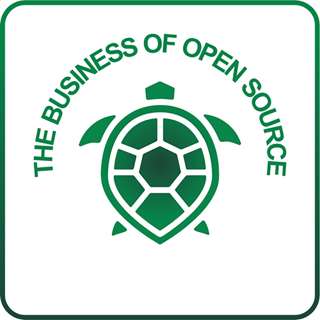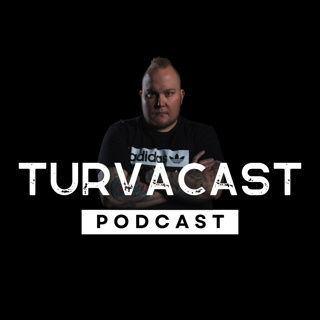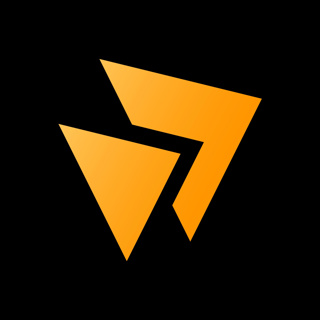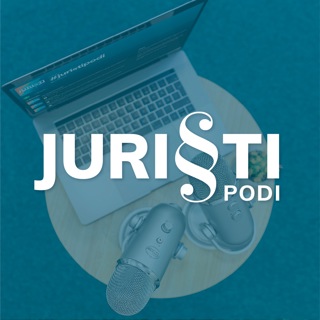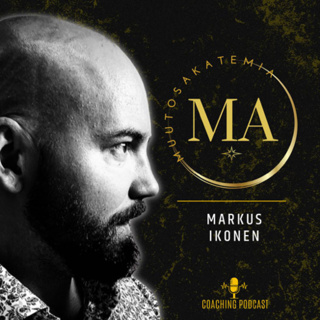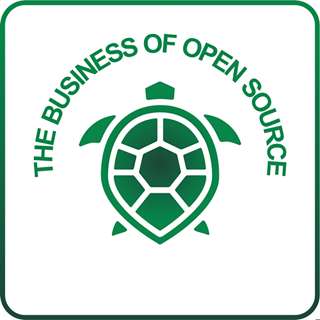
Creating a Movement through Community with Jono Bacon
Jono Bacon’s passion for building communities has been a driving force in a career taken him from Canonical to GitHub to founding the Community Leadership Core community accelerator. In this episode, Jono shares his definition of community, how a community can create a movement and the differences between the two. We also get a bit of insight into how he developed his passion for building communities and why he continues helping companies build and support theirs through the Community Leadership Core. When Jono speaks about communities he is involved with, he uses “we” instead of “I” to describe their achievements, so I had him dig into that a bit more as we explored the power dynamics that have a huge influence on the success of a community or movement. Highlights:I introduce Jono, who is the founder of Community Leadership Core (0:28)Jono shares more about his passion for building communities and why he started Community Leadership Core (0:51)Jono goes into his background, discovering how Linux was created, and finding connection to others through open source (2:47)Jono reflects on his time at Canonical and what he learned (10:46)How Jono defines and thinks about “community” (13:10)The difference between building a community and creating a movement (15:50)Using “we” vs “I” in communities to encourage collaboration (18:05)Where Jono sees companies missing the mark in community building (20:03)Jono explains what delivery looks like in the context of community (22:31)Jono shares examples of successful communities (27:05)Communities Jono enjoys participating in (28:44)How to start a community from scratch (31:22)A quick summary of the Community Leadership Core (32:40)Links:JonoLinkedIn: https://www.linkedin.com/in/jonobaconTwitter: https://twitter.com/jonobaconCompany: communityleadershipcore.com
22 Marras 202339min

Mitigating the Risks of an Acquisition with Michael Cheng
Michael Cheng is an M&A Specialist who has had an extensive career that includes a former stint at Facebook as a Product Manager and his current role as a Lawyer. In this episode, Michael returns to the show to have an in-depth discussion around acquisitions. Michael shares his thoughts on why most acquisitions leave everyone involved feeling unsatisfied, and what he thinks should be done by both parties to mitigate the high failure rate of acquisitions. We also chat about the common grievances founders have after going through an acquisition, and the approach Michael recommends to mitigate those regrets. Michael also shares insights on why it’s harder on an open-source company to be successfully acquired if they are in between being a purely services-based or SaaS company. Highlights:I introduce returning guest Michael Cheng, whose illustrious career spans roles as a Product Manager for Facebook, a Lawyer, and an M&A Specialist (00:22)Michael gives some background on his career history and why he’s pursued so many different roles (01:00)Michael and I discuss the bird’s eye view of the steps it takes to get acquired (02:23)Why most acquisitions fail (06:11) The common grievances that sellers have after going through an acquisition (08:11)Michael’s thoughts on the likely outcomes for acquisitions of open-source companies (10:28)What open-source founders can do to favor a successful outcome when approaching an acquisition (13:32)How Michael thinks success should be measured when evaluating the outcome of an acquisition (17:56)Why looking at the open-source community of companies being acquired is so crucial and often overlooked (22:13)How the due diligence process is different for an open-source startup versus a SaaS company (25:20)Michael describes how each core function in a company is affected by an acquisition (28:12)The advice Michael would give to founders to help them make peace with the outcome of an acquisition (33:42)How you can connect with Michael to learn more (37:02)Links:MichaelLinkedIn: https://www.linkedin.com/in/priorart/Twitter: https://twitter.com/SYOTFSCompany: https://www.aalyria.com/
15 Marras 202337min

A Second-Time Founder’s First Foray Into Open Source with Lars Kamp
Lars Kamp is the Co-Founder and CEO of Some Engineering, the makers of Resoto. In this episode, Lars describes what he’s learned from founding and working at multiple start-ups, as well as the main differentiators he’s experienced founding his first open-source startup. Lars describes his though process when it comes to selecting co-founders, and illustrates why it’s even more important to be discerning when selecting investors. Lars and I also discuss the advantages that open-source gives to founders who are focused on the distribution strategy for their product, and Lars reveals why he is a big proponent of having docs be a part of your product-led growth strategy. Throughout our conversation, Lars’ insights create a detailed picture of what second-time founders think about and how SaaS startup experience relates to open-source business strategy. Highlights:I introduce Lars, who is the CEO and Founder of Some Engineering (00:23)Lars describes what he does at Resoto and the user groups they work with (00:47)How a tweet by Jeff Barr inspired Lars and his co-founders to start working on Resoto (01:37)What it was like for Lars to start a company with co-founders he didn’t know very well (05:03)Why Lars went from working with closed-source SaaS companies to founding an open-source company (07:26)The main differences Lars has found between founding a SaaS startup and an open-source company (09:24)Lars describes the value he sees in investing in really good docs (10:44)Why Lars focuses more on distribution than product as a second-time founder (13:19)What third time founders think about and what they don’t (16:18)Lars’ advice to founders (18:40)Why Lars sees a big advantage in open-source business models, especially when it comes to distribution (20:09)The advice Lars would give himself if he could go back in time to the early days of Resoto(28:31)How to get in touch with Lars (32:23)Links:LarsLinkedIn: https://www.linkedin.com/in/larskamp/Twitter: https://twitter.com/l1rsCompany: https://some.engineering/
8 Marras 202333min

Advice for Open-Source Founders from a Seed-Stage VC with Amanda “Robby” Robson
Amanda “Robby” Robson is a Partner at Cowboy Ventures and the co-host of the Open Source Startup Podcast. In this episode, Robby shares insights on what she’s looking for in open-source founders to potentially invest in, including the importance of being able to manage both your community and your paid model simultaneously. Robby and I also discuss the importance and pitfalls of choosing a monetization strategy, as well as the dangers of having too many monetization models too soon. Throughout our conversation, Robby highlights the specific challenges that open-source founders face, and how she’s seen successful founders either avoid or overcome them. Highlights:I introduce Robby, who is a Partner at Cowboy Ventures and the co-host of the Open Source Startup Podcast (00:22)Robby gives some insight into how she evaluates startups from an investment perspective, and the peculiarities that go into evaluating an open-source startup (00:45)The nuances of evaluating the market opportunity for an open-source company (05:20)A common mistake Robby seeks early stage founders make when evaluating their market size (08:06)Robby shares what she’s learned about best practices for seed-stage startups who are looking to determine their monetization strategy (10:02)The dangers of having too many monetization models as an early stage startup (13:22)Traits that Robby feels are most valuable for an open-source founder to possess (14:48)Robby reveals the common traps that open-source founders fall into (17:13)Why Robby feels that successfully monetizing an open-source company has more to do with resources than timing (19:46)Robby’s thoughts on whether she would ever found an open-source company and how she would approach it (21:18)How Robby’s thoughts have changed on whether open source projects need to intentionally become a company or vice versa (23:44)What it’s like to advice against the open-source business model as a venture capitalist (29:10)Links:RobbyLinkedIn: https://www.linkedin.com/in/amanda-robson-7227685b/Twitter: https://twitter.com/amanda_robsCompany: https://www.cowboy.vc/
1 Marras 202332min

Bridging the Knowledge Gap on Community Data with Daniel Izquierdo
Daniel Izquierdo is the Co-Founder and CEO at Bitergia, an open-source company that provides software development data and analytics. In this episode, we connect at the Open Source Summit in Bilbao to discuss how he went from working in academia to co-founding an open-source company. Throughout our conversation, Daniel shares interesting anecdotes on the unique journey he’s taken to build Bitergia, including why they haven’t focused on growing fast so much as they have focused on growing in a way that supports their employees and customers. He also shares insights into how to measure an open-source community, and the knowledge gaps that he sees in people who can’t contextualize the data they’re getting on their community. Daniel also walks us through the other open-source business models Bitergia tried before discovering what worked for them.Highlights:I introduce Daniel, who is the Co-Founder and CEO at Bitergia, as he joins me at the Open Source Summit in Bilbao (00:24)Daniel describes the work that he does at Bitergia (00:41)The story of why Daniel helped to co-found Bitergia during the finalizing of his PhD (01:38)How Daniel and his co-founders got by as they transitioned from academia to founding an open-source company, and what the first year of running Bitergia was like (03:28)Daniel explains how Bitergia makes money as an open-source company (06:04)The main types of customers that Bitergia works with (07:50)The metrics that Daniel feels are critical when measuring an open-source community (08:50)Daniel describes the knowledge gap he observes in clients who can’t contextualize the data they get on their community (11:16)The story of how Bitergia tried other open-source business models before finding what worked for them (13:41)Why Daniel feels it is a disadvantage to have his company based in Spain (16:07)Daniel shares his growth philosophy for Bitergia (18:47)The challenges facing Daniel and his team at the moment (20:21)Daniel’s advice to aspiring open-source founders (21:53)The most interesting mistake Daniel feels he made in building Bitergia (23:57)Daniel shares what he feels is the main difference between starting a company with and without an open-source component (25:33)Links:DanielLinkedIn: https://www.linkedin.com/in/dicortazar/Twitter: https://twitter.com/dizquierdoCompany: https://bitergia.com/
25 Loka 202329min

How Not to Make Open Source with Leszek Manicki
Leszek Manicki is the Engineering Manager at Wikimedia Germany. In this episode, we connect at the Open Source Summit in Bilbao to discuss what he has learned being a part of Wikimedia movement and how that inspired his talk at the summit, How Not To Make Open Source. Throughout our conversation, Leszek describes the challenges Wikimedia has experienced in trying to get more contributors to their projects while also having a high security standard and a complex architecture. He also describes what he has learned from these challenges, and gives recommendations for other organizations to consider as they look to get more contributors to their own projects. Leszek also shares his experience representing a non-profit organization that seeks to offer free knowledge at an event that features more commercialized open-source offerings, and how he hopes this will bring about a positive socio-economic change.Highlights:I introduce Leszek, who is the Engineering Manager at Wikimedia Germany as he joins me at the Open Source Summit in Bilbao (00:23)Leszek describes his role at Wikimedia movement and what brings him to the Open Source Summit as a speaker (00:39)The number one thing that Leszek believes open-source organizations shouldn’t do (03:41)How Wikimedia has attempted to get more external contributors to their projects and what they learned from their successes and failures there (07:17)Leszek describes the relationship between the creation of knowledge and the creation of software in the Wikimedia organization (12:57)How Leszek and his team are increasing collaboration with external sources to build software (15:43)Why Leszek advocates for simple architecture when you’re building a project that will seek external contributors (17:38)The inherent value that Leszek sees in having a community of contributors on a project (18:52)Leszek reflects on his experience attending the Open Source Summit and his hopes for the future (20:20)Links:LeszekLinkedIn: https://www.linkedin.com/in/leszek-manickiCompany: https://www.wikimedia.org/
18 Loka 202322min

Getting The Most Out of Open-Source Events with Brian Proffitt
Brian Proffitt is the Senior Manager of Community Outreach at Red Hat’s OSPO. In this episode, we connect at the Open Source Summit EU to discuss how Brian uses events to drive both lead generation and community-building efforts. Throughout our conversation, Brian describes how measuring the ROI of an event can be tricky and why it’s important to look at events as a long game strategy. We also discuss why events provide some of the most valuable feedback when testing your positioning and messaging, and what can be done to increase the odds that your events are successful and produce good outcomes.Highlights:I introduce Brian, who is the Senior Manager of Community Outreach at Red Hat’s OSPO as he joins me at the Open Source Summit EU (00:28)How Brian categorizes the different types of events he attends and hosts (01:55)The primary metric and objective for lead gen events, and what can be done to increase the odds that your lead gen events bear fruit (05:18)Why events are such a valuable part of testing your positioning and messaging (09:14)Brian delves into the value of community events and what the ROI for those looks like (12:50)The strategy Brian employs for getting the most out of community events when ROI can be difficult to measure (15:40)Brian shares why he feels that events are more of a long game strategy (23:24)The advice that Brian would give to an open-source founder or start-up that is looking to get the most out of their events strategy (25:28)The best ways to learn more and connect with Brian (31:34)Links:BrianLinkedIn: https://www.linkedin.com/in/brianproffitt/Twitter: https://twitter.com/TheTechScribeCompany: https://www.redhat.com/en/blog/channel/red-hat-open-source-program-office
11 Loka 202332min

Embracing Product-Led Growth in Open Source with Kim McMahon
Kim McMahon is the leader of Open Source Marketing & Community at Outshift by Cisco, which is Cisco’s emerging technologies and innovation unit. We recorded this episode at Open Source Summit EU, and talked about Kim’s strategies and tactics related to helping guide users to the correct edition of your product — ie, decide whether the open source option or a commercial option is best for them.Kim talked about the tricky balance open-source companies must strike between embracing open-source principles and driving revenue as a business, Kim’s tactics for community building and why it’s so important to be clear on why you want to build a community and the outcomes you expect from your investment in community building. Highlights:I introduce Kim, who is the leader of Open Source Marketing & Community at Outshift by Cisco, as she joins me at the Open Source Summit EU in Bilbao (00:25)Kim gives an overview of the talk she is giving at the Open Source Summit, which is on the topic of self-identifying when to shift to a managed version of open-source products (01:35)Kim and I discuss the different personas of open-source software users, and the role that product-led growth plays for open-source companies (03:07)Why Kim feels it’s critical to not treat your community as a sales database but rather to provide educational content to drive sales of open-source products (09:10)Kim and I discuss the challenges of marketing an open-source project and whether positioning truly falls under marketing (10:49)How Kim created a feedback loop on her team between sales, marketing, and product to ensure alignment when bringing open-source products to market (13:31)Kim walks through her thought process for community building from scratch (17:23)How Kim evaluates if a community-building strategy is working or not (24:34)What Kim learned about being a part of a community by being a member of a food co-op (28:09)Where to connect with Kim and learn more about her work (34:44)Links:KimLinkedIn: https://www.linkedin.com/in/kimmcmahonco/Twitter: https://twitter.com/kamcmahonCompany: https://eti.cisco.com/
4 Loka 202336min
